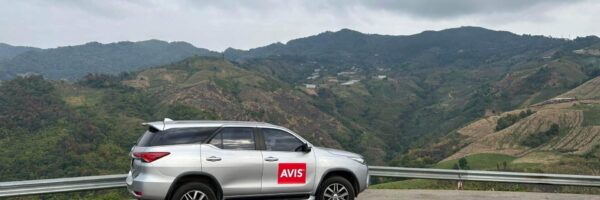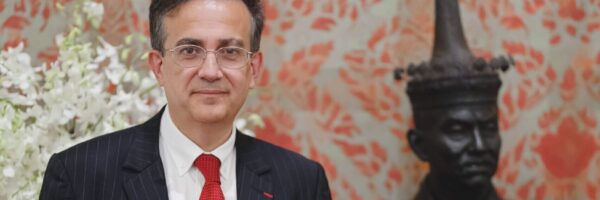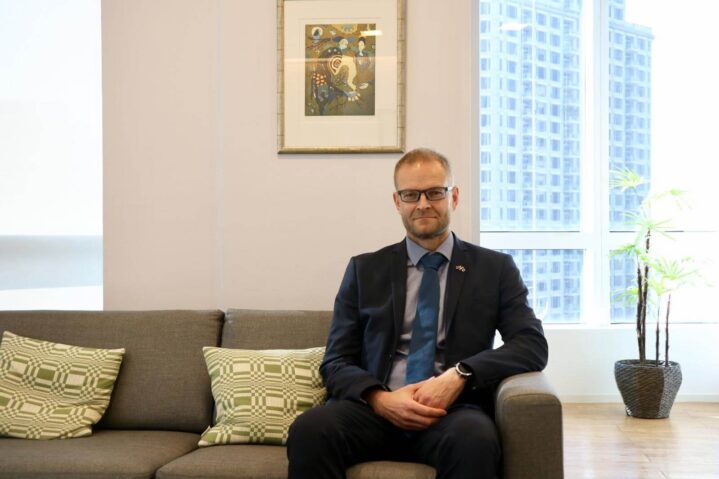
H. E. Mr. Jyri Järviaho Ambassador of Finland to Thailand and Cambodia
Expat Life recently sat down with Jyri Järviaho the Finnish Ambassador to Thailand in the Embassy of Finland in Bangkok to catch up and discuss the current situation with Russia and the Ukraine.
A very delicate matter…
The Finnish/Russian international border is roughly North to South between the Republic of Finland and the Russian Federation. Some 1,340km (830 miles) long, it runs mostly through uninhabited taiga forests and sparsely populated rural areas, not following any particular natural feature or river.
Finland is looking to join NATO along with Sweden and they are both already in the European Union (EU).
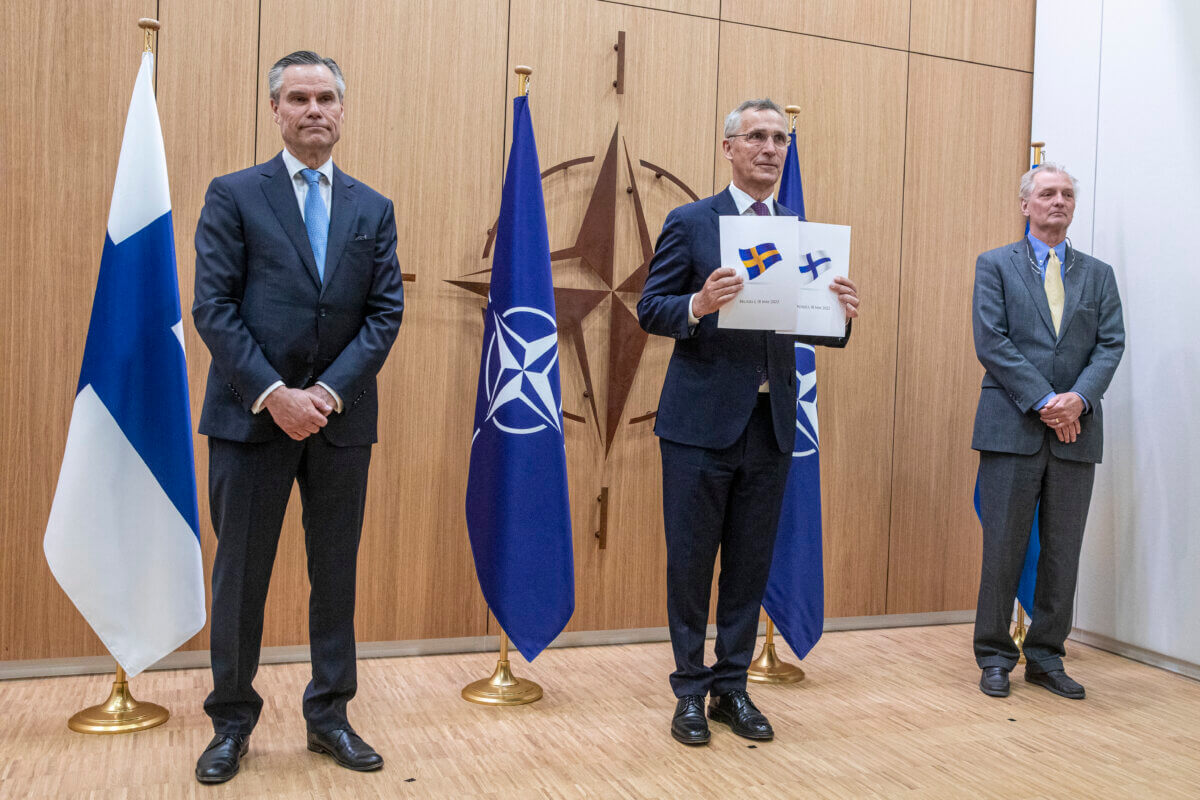
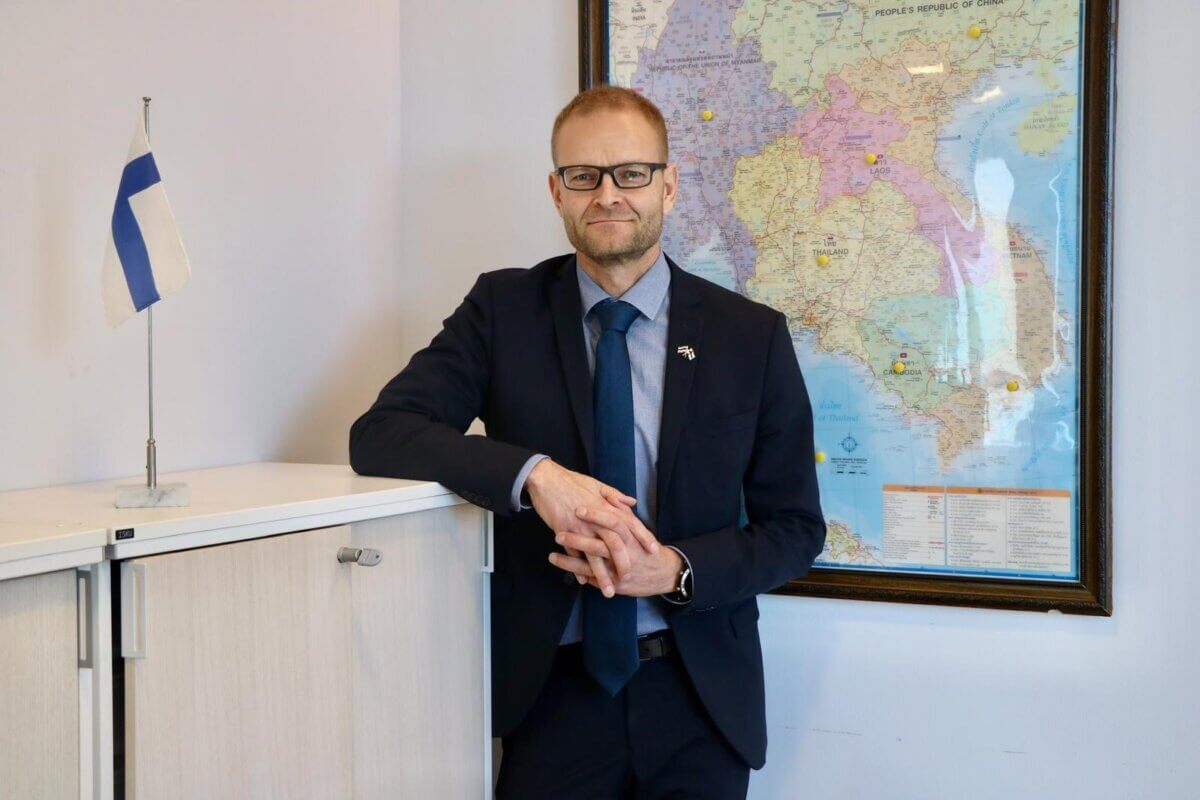
Jyri can you give our readers a summary of the history of the problems of the past, where we are today, your views on joining NATO and becoming part of the alliance?
‘Finland was an autonomous Grand Duchy of the Russian empire for over 100 years, when finally in December 1917 Finland declared independence from Russia at the time of the Russian Revolution. The Bolsheviks recognized Finland’s independence the last day of that same year. In the spring of 1918, a civil war broke out in Finland. The republican forces won the civil war and Finland finally established a democratic Republic with President as its Head of State.
In 1939 Germany and the Soviet Union agreed a so called Molotov-Ribbentrop Pact. They promised not to attack each other, and secretly divided the countries and regions between their spheres of influence. Finland was to be part of the Soviet zone.
As a result, in November1939 Soviet Union attacked Finland in the so called Winter War in harsh conditions – minus 40C at times. The Finns were used to dealing with the freezing winter conditions but the Russians were in deep trouble. Finland was also fighting alone, without outside help, having not been part of any alliances at the time. Finally, a short lived peace treaty was signed in March 1940. The war later continued in 1941 until 1944.
For the Finns the war was a very harsh experience. Nevertheless, after humanitarian losses and losing some territories, the main thing was of course that no foreign troops occupied Finland and our independence and sovereignty were saved.
After the Second World War we started building relations again with the Soviet Union. War reparations that Finland had to pay built a basis for trade with them. Those were the Cold War times and we felt that our foreign policy choices were limited in a way that we were not able to join the Western alliance’s such as the EEC (European Economic Cooperation) or NATO (North Atlantic Treaty Organization). So, we lived as a neutral, non-aligned country between the blocks.
When the Soviet Union collapsed in 1991, a new door opened for the whole of Europe. Finland decided to join the EU in 1995 but left the NATO membership as an option if circumstances would that require. Joining the EU was important in terms of being part of the Western economic and political family, integrating our economy in to European one. I think in 1990’s we were hoping that Russia would develop differently, and become more democratic and politically and economically integrate towards Europe.
Of course, Finnish companies were interested in Russian markets. Our companies invested quite a lot in Russia and we had plenty of trade between the two countries. Obviously, we are geographic neighbors and there was also a lot of border trade and connections. Russian city of St. Petersburg, with its 5.5 million population, is only 200kms from our border. There was a lot of tourism both ways into each other’s country. These people-to-people contacts developed quite positively until recently. It is however important to recognise that Finland – and the European Union – have not been in a “business-as-usual” situation in relations with Russia already since the 2014 illegal annexation of Crimea and the start of the war in eastern Ukraine.
It was a cutting point however on the 24th of February 2022 when Russia illegally attacked Ukraine with its military forces and launched a full scale war of aggression. In literally overnight it changed the whole security and political landscape totally. Russia’s invasion of Ukraine is a blatant violation of the United Nations Charter and international law and Ukraine’s sovereignty and territorial integrity. I think Europe, but also the whole world, was in a totally new situation. Finland has condemned Russia’s illegal invasion from the beginning in the strongest terms. It was clear that our relations with Russia will be profoundly affected for the foreseeable future. Europe was very united in its response to Russian aggression. Several unprecedented large EU sanctions packages followed, and massive military and humanitarian support for Ukraine was agreed. I am convinced we will stand with Ukraine as long as it takes. Russian aggression must be stopped. A clear majority of countries have condemned Russian aggression in several UN General Assembly resolutions.
After the Russian illegal invasion of Ukraine, the security situation is more serious and unpredictable in Europe than at any time since the Cold War. I think many of the neighbours of Russia are feeling insecure now.
For Finland this meant that the security environment in our neighbourhood and in Europe had fundamentally changed. Therefore, after much discussion and evaluation of the situation, the Finnish Parliament decided in May 2022 to leave an application to NATO membership. Membership discussions were conducted in July 2022, and we expect to become a full member of NATO in 2023. For us it is also very important that our close neighbour and partner Sweden will join the NATO as well. This, we believe, will enhance the Northern Europe and Baltic region security, since both Finland and Sweden are security providers.
The current population of Finland is 5.6 million people. The land mass is approximately 338,145sqkm – the same size as Norway and it has roughly the same population.
There are some areas in the Northern part that are uninhabitable. In Helsinki it is minus -5C, in the North minus -10C. It can get to minus -30C.
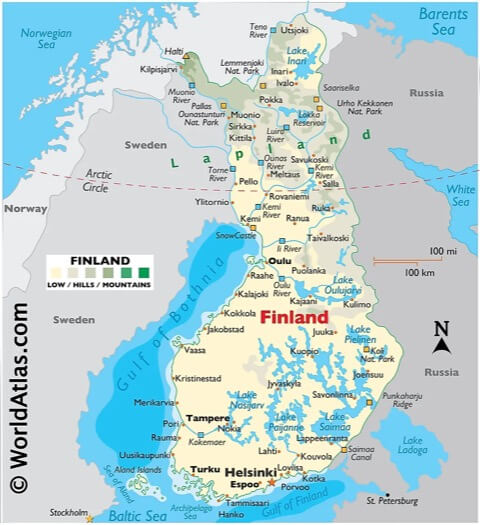
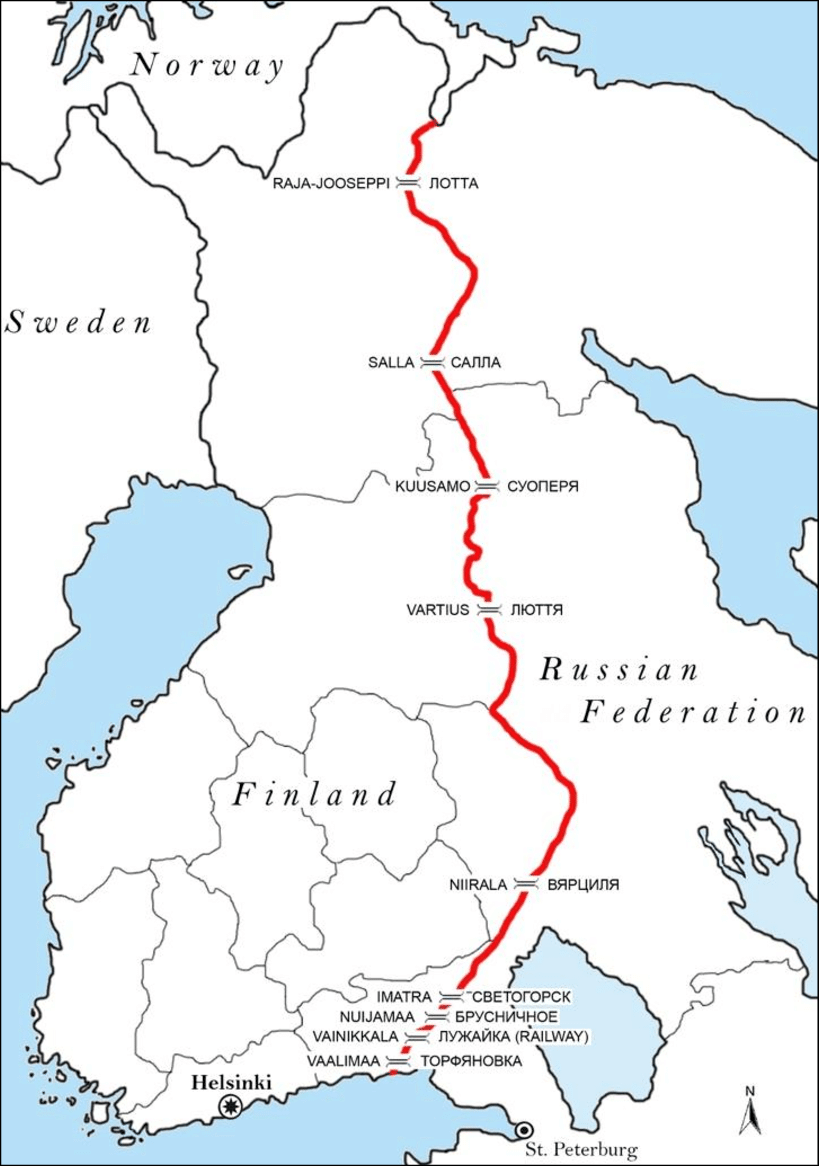
Scandinavian people want to live by the seaside when they come to Thailand. They love the Thai beaches, the sun and the sea, as well as the friendly Thai people! I asked Jyri where he was born and he replied a small western village of Vimpeli in the middle of the country.
Turkey and Hungary were holding out on whether Finland and Sweden should be allowed to join NATO. Whoever negotiated the rules must have had an off day I think. How can you allow one country to hold the other 30 members to ransom?
Jyri told me that Turkey, Sweden, and Finland held consultations with regards to joining and ratification process for Finland seem to have started in Turkey. Finally, also Hungary ratified Finland’s membership on the 27th of March.
For new members to be allowed to NATO, all NATO member countries need to ratify the accession, in this case both Finland and Sweden membership. 28/30 have agreed earlier – just Turkey to ratify both Finland and Sweden, and Hungary to ratify Sweden. Hopefully by July – both countries will be full members, by the time when there is a NATO summit in Vilnius in Lithuania. Let’s hope that common sense prevails, I added.
The fact that you are outside NATO – I understand that Finland has an efficient army, well equipped with modern armament.
We never let our guard down Jyri replied. We have universal armed forces service and quite a sizable army. Our defence forces are also equipped with modern weaponry, F/A-18 Hornet fighter jets and for example, artillery that is one of Europe’s strongest. That’s why we believe that we bring NATO an impressive defence capabilities. With Sweden and Finland, it would bring NATO all of Northern Europe with the Baltic States and the Nordic countries. It will ease the military planning in the north and enhance the northern Europe security. The threshold for using military force in the Baltic Sea region will rise. Our forces are compatible with NATO forces and Sweden and Finland also complement each other’s military capabilities well.
For many years the Finnish army have been looking at compatibility with the NATO forces and having military exercises with them all along, so all parts of the jigsaw fit perfectly.
Finland and the EU support Ukraine’s initiative for a just peace. President Zelensky’s ten point Peace Formula lists important objectives for securing a just and lasting peace. It is important to remember, however, that Russia could end this war at any time by withdrawing from Ukrainian territory.
Do you return to Finland regularly?
Yes, I was there at Christmas it was minus 5/10C. They have had a mild winter this year.
Jyri is 57 but looks younger and has obviously kept fit. He has one son, who has his own family back in Finland, so Jyri lives and travels with his wife in Thailand.
When do Finnish men get their National pension?
For me it is 65 Jyri replied, and in the future, it is tied to peoples’ life expectancy, so it will increase.
Our natural resources are forests. Finland is heavily forested, with over 70% of the country covered by thick woodlands. Also, there are plenty of waterways and lakes. It is often called “The land of a thousand lakes,” Finland actually has 187,888 of them.
We do not have oil and gas like Norway he continued. However, Finland has not been dependent on Russian energy. Fortunately, we have a common electricity grid in the Nordic countries, so if one of the countries is missing something the others can assist.
In fact we have just started our fifth nuclear reactor in Finland, which will produce quite a lot of electricity. To reach its climate targets Finland has also started transforming its electricity production to renewable energy sources. One thing that has grown rapidly in Finland is wind energy, that produced last year around 17% of our total electricity production. An expanding clean energy alternative.
We are substituting Russian oil from the United States, Norway and the North Sea. We also rented a LNG Terminal ship from the US, for liquefied gas. In Central Europe, they relied more on Russian gas, especially with heating their homes. In Finland, gas was never a major source in our energy mix, less than 10%.
Jyri said that there was much discussion on how to reduce the reliance of Europe’s need on Russian gas and oil, especially the former. The EU has placed sanctions not only on Russian oil, but also on the Russian individuals and organisations like banks, high end equipment, cutting edge technology, transport and space technology, energy industry equipment etc. Russia is suffering lacking this equipment as a consequence and their industries have been adversely affected. In the long term it will be difficult for Russia to maintain a high technological edge on many industries. The West still creates and distributes high end technology essential for the efficient operation of many sectors and it is clear that Western companies’ investments will not go to Russia. I think Russia has set itself into a very difficult path.
Europe has realised that it was a mistake to rely so heavily on Russian energy, it will be hard to restart using Russian energy supplies in the future. At least not to be too reliant. I am sure that Russia will lower the price and tempt countries back into the fold. There is a lesson for us all to learn from this. It is hard to depend on countries that are run in an authoritarian way.
It has however bought Europe together. I think that many people were surprised to see that, and good to see how many of the world’s countries have joined together against the invasion of the Ukraine by Russia. Most recently in February, on the anniversary of the full scale invasion, 141 of the 193 member states voted for the resolution presented at the emergency session of the UN’s general assembly. Furthermore, as sanctions have been imposed on Russia, it that has become more and more isolated both politically and economically. For a year now, our message has been that the global community must stand up united for respect of international law and the rules based international order. It is our common duty to uphold the UN Charter.
The war has been a major miscalculation by Russia geopolitically, economically, resulting in huge human and material losses, including in their military might. Most of all my thoughts are with Ukrainian people, their suffering and losses of innocent lives in this senseless war. The humanitarian situation in Ukraine is difficult. The UN estimates that 8 million people have fled Ukraine to Europe. There are 5.4 million internally displaced Ukrainians. Finland has allocated around 930 million Euros to Ukraine through development cooperation, humanitarian assistance, material assistance and defence materiel assistance. Finland also supports the investigations of Ukraine and the International Criminal Court into war crimes and crimes against humanity committed by Russian troops.
Jyri told me that they have parliamentary elections coming up on April 2nd and that at the moment they have a five party coalition government. The current Prime Minister is from the Social Democrat party, Ms. Sanna Marin, and she is very popular. Whatever the result of the elections, in foreign and security policy there will not be major changes, all parties are fully behind our NATO membership.
Hungary and Turkey have now ratified Finnish NATO accession this week, so they will become a full member quite soon. They are still holding out for Sweden. Hopefully ratifying that soon as well.
Their parliamentary elections are on Sunday 2nd April, so the results will come on Monday 3rd.


